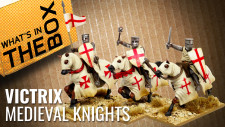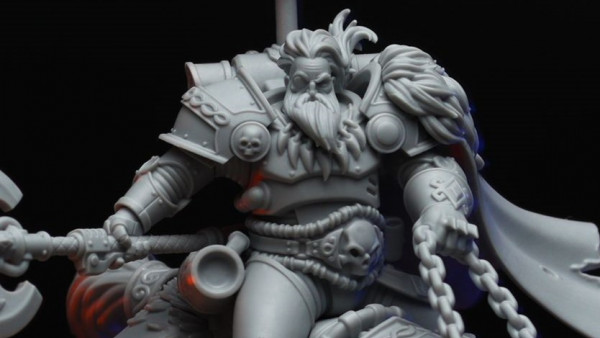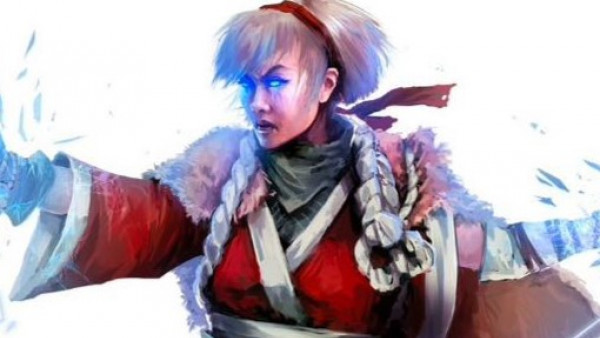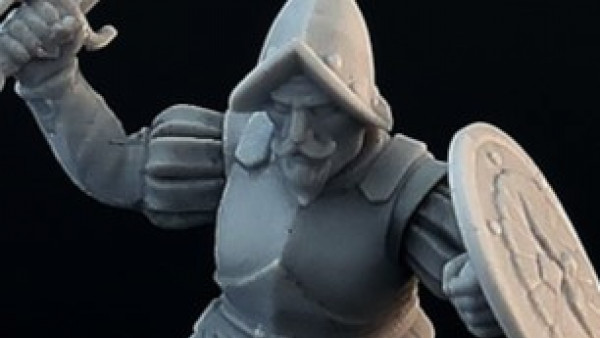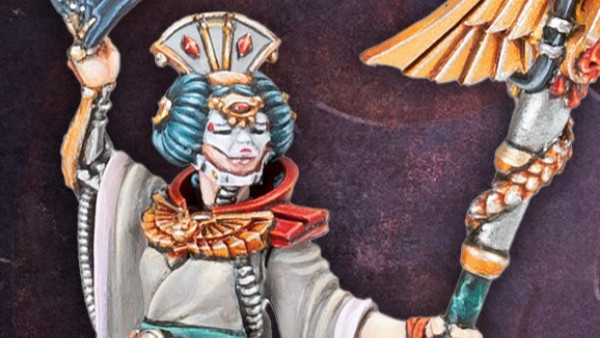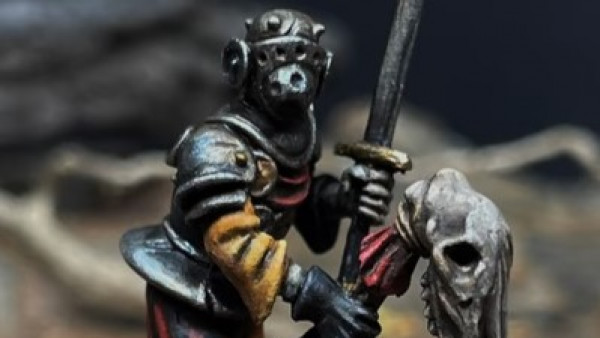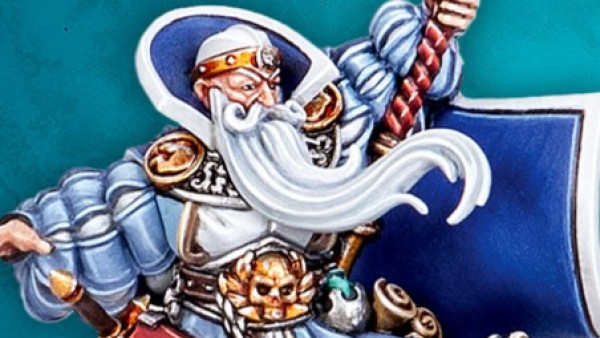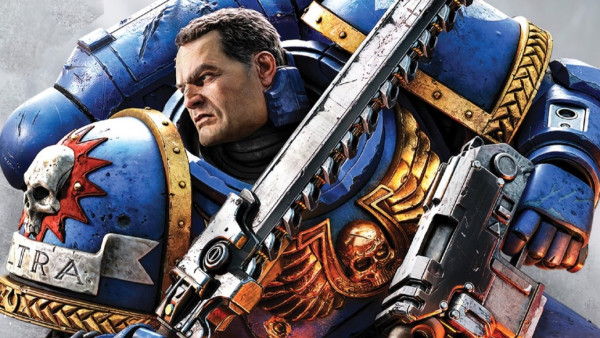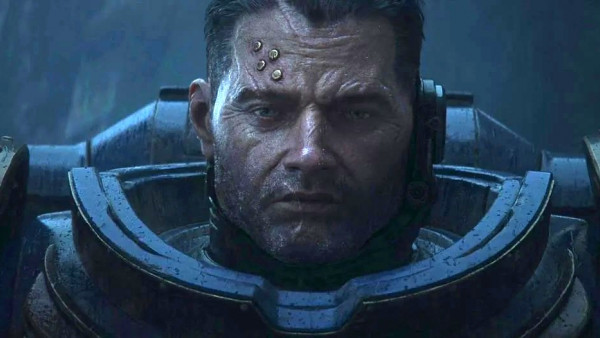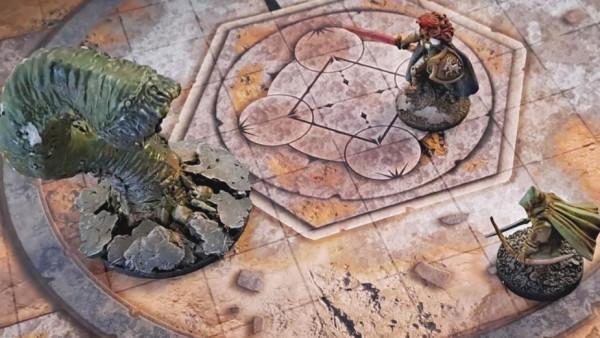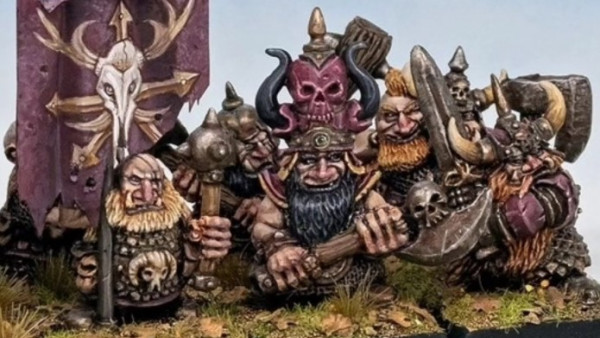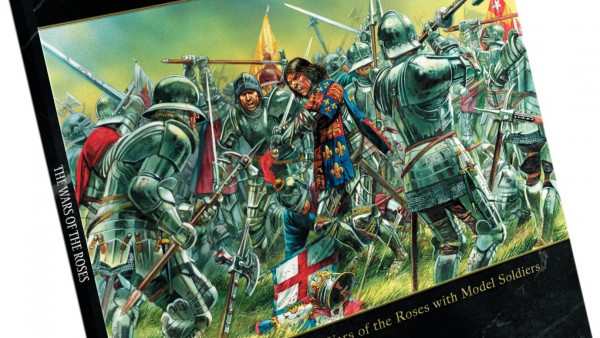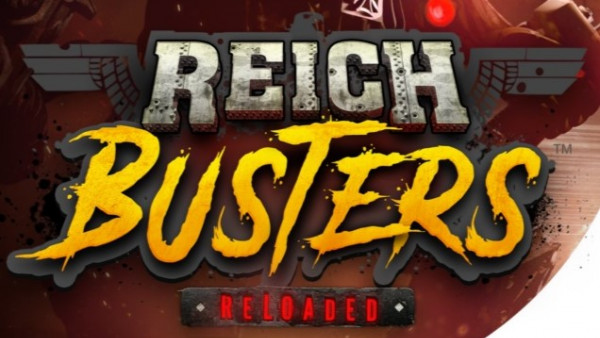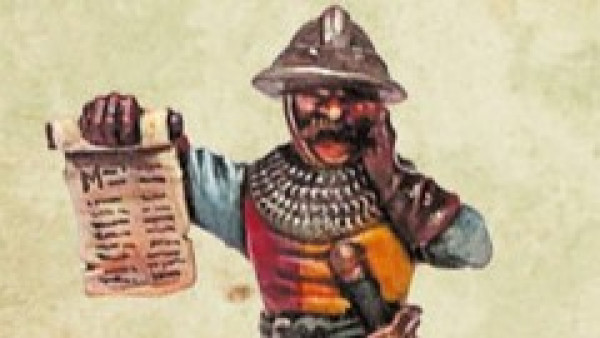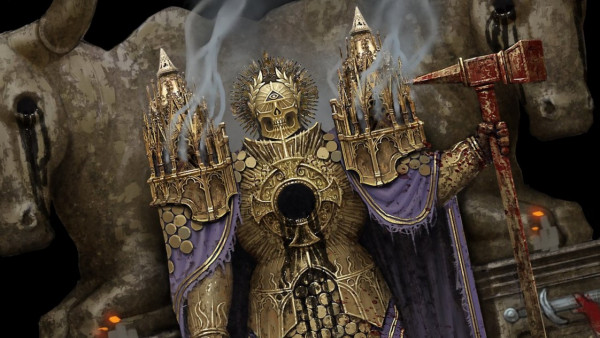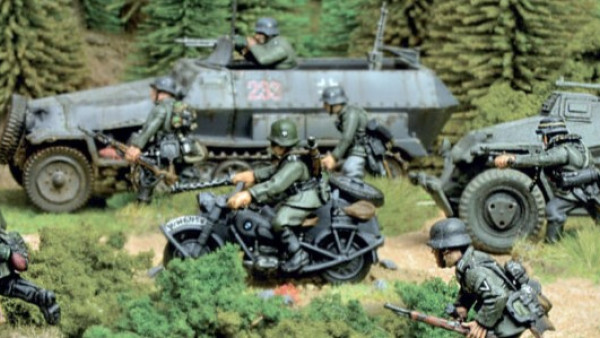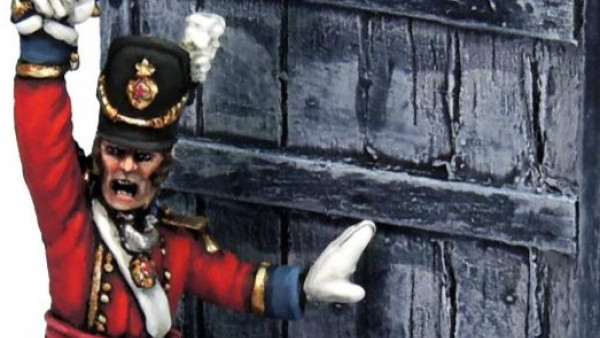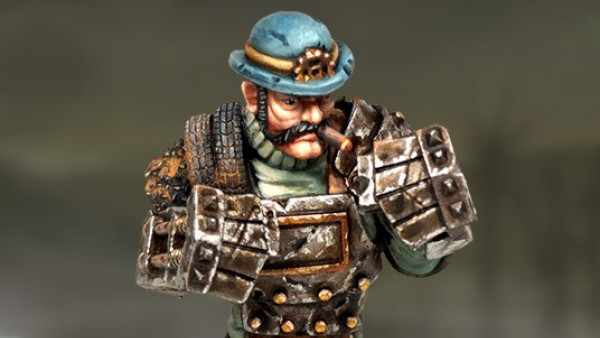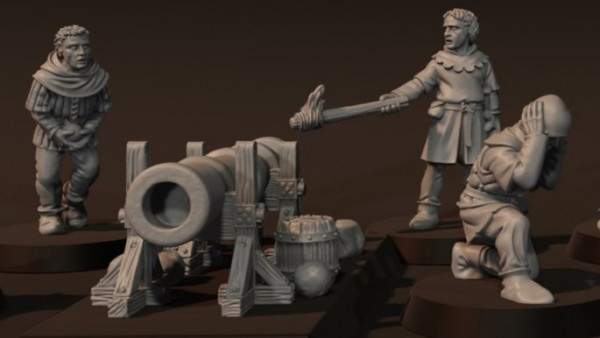Home › Forums › News, Rumours & General Discussion › RPG's and… the end times…
This topic contains 8 replies, has 8 voices, and was last updated by ![]() kiranamida 5 years, 11 months ago.
kiranamida 5 years, 11 months ago.
-
AuthorPosts
-
January 8, 2019 at 6:42 pm #1325677
There’s a problem with level based RPG’s and the highest levels in particular… they’re a bit pointless really.
Suppose you play a game all the way through to the final level…
Lets use D&D as the example…
Why bother with awarding feats, skills, spells, hit points etc?
Because even if the character does gain any more XP… it can’t do anything with it! They’ve maxed out. The reward for further gaming is just survival (and yes, I know there’s the role-play aspect which is perhaps the most important bit) against more monsters and challenges…
And the challenges at high levels tend to be extreme… too easy, or nigh impossible!
Makes me wonder what those few gamers out there still playing their first edition d&d characters do to keep themselves entertained… and if you’re one of those players… please tell me!
Note: This also applies to systems with skill ranks that max out eventually…
January 9, 2019 at 9:44 am #1326351@pagan8th the onl campaign I played to epic level (ie our characters got to level 20) ws a D&D 3.5 setting. We won the campaign shortly thereafter against nigh-on impossible odds and all the characters were retired thereafter. They had achieved their objective of defeating the evil which the party had been formed to stop. had we kept progressing it would have required much more challenging opponents to keep things interesting and this would not have sat well with the narrative that the DM had woven for the world. Consequently once the objective had been achieved he did the sensible thing and drew a line under the campaign. The following week we kicked off a campaign in a different setting (post apocalyptic rather than high-fantasy).
I’m not sure how 5th ed handles levels above 20 but 3rd ed/3.5had epic levels so you could push on for another 10 levels or so (if you could survive the dimension-hopping and overpowered gribblies that would end up assailing you).
Your point is well made though – once you have reached a point where your experience has plateaued and you have achieved all you can then unless there is a specific unfulfilled obligation or quest that the character has yet to achieve then they may wish to ‘retire’ or the DM might seek to conclude the campaign. That way everybody can get the opportunity of playing a different character type (even characters that are initially fun to play can become a bit stale after playing them for months at a time). You may find that your DM ends up weaving notable past heroes into the narrative fabric of the campaign – having them as rulers of nearby kingdoms, merchant lords, high priestesses or eccentric arcane researchers.
January 9, 2019 at 10:17 am #1326371Every villain starts out as the hero of his own story…
January 9, 2019 at 12:52 pm #1326511I watched a video by a channel called the dungeon dudes and they split D&D into 4 different tiers which talks about this in detail; although it’s 5E centric this has definitely been a feature of D&D for as long as I can remember (I frist played AD&D 2nd Edition) and it also affects Pathfinder. The tiers that they defined were
Levels 1-4
Levels 5-10
Levels 11-16
Levels 17-20They also go on to compare the different tiers to different settings from films and novels or even history mostly based on whether those settings would be likely to encounter anything outlandish like Dragons. For example they assert that in the real world, nobody has ever been higher than level 3 or 4 in D&D terms simply because nobody has ever exemplified any of the abilities that would define a d&D character of those higher levels. It’s a fair assumption but that in itself highlights what I dislike about D&D (even though I play it because that’s what my gaming group wants to play).
In my opinion, characters are definitely more fun at the lower levels, when the mundane can still be a threat. You aren’t reliant on ridiculously powerful monsters like Demons and Dragons, or powerful NPCs, to provide a challenge – beings that are powerful enough to just go and do whatever it is that they think they’re trying to do rather than waiting for a bunch of heroes to get to a high enough level to defeat them. At higher levels the heroes become unstoppable and can effectively do what they want, the monsters that they fight are similarly powerful and so it always seems like a contrivance that they reach their levels of power at just the right time to stop the villains when in reality the chances are they would be several years to late and the bad guys would win. A friend of mine who plays Pathfinder has said that in his opinion characters stop being fun at around 12th level and that the game starts to get a bit unbalanced at that point with some classes start to leave other classes behind.
One of the things that bugs me about D&D is not so much the feats and abilities as the endurance of characters being handled as an cumulative amount of damage. So a 1st level character can absorb more damage than a 20th level character. Now I understand that this is an abstraction of damage and combat but in my opinion it’s not a very good one. In reality, if we take some of the best and toughest warriors alive, people like the SAS, Bavy Seals, Spetsnaz, they’re very good at fighting and if you’re untrained you’re probably going to get your arse handed to you on a plate by them. But if you get the drop on them they’re as vulnerable to weapons as anyone else. An unexpected bullet or blade in the right place will drop them instantly and there won’t be much they can do about it. In D&D this isn’t reflected and it does allow you, to an extent to play the numbers game and just ignore some things because you know that it can’t actually deal enough damage to kill your character where a real fighter would always have to pay attention to someone wielding a weapon and ensure they defend themselves; A 10th level fighter doesn’t need to defend against a goblin with a spear because he knows that the maximum damage the Goblin can do (a critical hit which doubles the damage and rolling maximum on all dice) is not even close to the amount of damage he can take, if the Goblin can even hit in the first place. This is compounded the higher the character level to the stage where it just becomes unrealistic that Goblins can ever provide a meaningful threat unless they’re all written as NPC Goblins who are also at the same level as the characters. Coupled with this is the amount of damage that is dished out by the heroes, damage that is more than enough to one-shot most non-NPC minions (humans, Orcs) – it’s would usually enough to kill several enemies if you are allowed to split damage for any reason. So unless you start introducing new races and monsters, the heroes are in a situation where the enemies will only hit potentially 10%-25% of the time and when they do they will be doing less than 10% of the hero’s hitpoint total. You can, from that work out that, ignoring healing spells it will take bad guys a minimum of 40 attack rolls to fell a single hero; that’s an amount of time that they’re just not going to get. For me, as a rule of thumb, when the world you’re playing in ceases to be a threat and you have to rely on fairly contrived enemies to provide a challenge the game isn’t fun. If I can walk into a town and basically do whatever I want because the entire town combined simply couldn’t stop me then really that’s not a fun game. If a pleb can’t still have a reasonable chance of killing me if I am unprepared, I don’t really want to play. I think in D&D, characters become less relatable and less interesting as the get into the higher levels in a way that I haven’t really experienced in other, class-less games systems. But to me it’s all driven by the damage system.
I much prefer games like Savage Worlds or Shadowrun (even if the “bucket of dice” mechanic can be cumbersome) because the amount of damage you can take rarely changes. What changes is your ability to avoid or block the damage but in order to do so you have to act in certain ways. You can’t just walk into a hail of gun or arrow fire and say “it’s ok, they can’t do enough damage to kill me”. All weapons can always do enough damage to kill you, even if you’re wearing armour so you have to act accordingly. You can’t just walk into a place and throw your weight around no matter how experienced your character because you can’t take more damage than the people you’re fighting and you’re not necessarily any harder to hit in the first place. You might have better defences but the more times you are asked to roll on your defences the more damage you will take.
January 9, 2019 at 2:41 pm #1326582I also ran a D&D 3.5 then ventured into epic levels and gave my characters narrative options at the end (so I kind of answered my own forum post…)…
Ranger PC retired to a demi plane with his family. Fighter joined the pantheon as a demigod. Monk became a mortal. Druid elected to reincarnate at sunrise everyday as a small animal.
January 9, 2019 at 10:32 pm #1327106My group has always run a campaign for a while, and eventually finished the story arc in such a way that we retire all of it.
I can’t imagine anyone playing the same character for twenty years. I mean, at some point you’ve got to start looking at other builds and wanting to try out something new, right?
D&D definitely had a problem with higher level encounters just being stupid to play (most spells are save or die). My group has been playing Iron Kingdoms instead, and it is much easier to create a high level encounter that works in that system (since in that system low level characters actually have a chance to hurt a high level character, so even the super badass fighter doesn’t think he can take on the legion of gobbers without a really good plan).
January 9, 2019 at 11:28 pm #1327177I’m having this issue in my current game.
Warhammer Fantasy, 2nd edition. Always touted for its realism, danger, and grittiness.
It’s been a long campaign, and the players are all heavily invested in their characters. To the point where they don’t want to countenance starting new ones or changing games.
The other night, they were ambushed in their bed-chambers by some corrupted soldiers, who were by WarPG standards actually pretty bad-ass NPCs (2 attacks, WS 45, 14 wounds).
The PC’s were unarmed and unarmoured, while the NPCs had the element of surprise, and equipment.It was fun and intense, but in the end the PCs pretty thoroughly tub-thumped the opposition. The only player who got really hurt was the low-level lay priest, but that was entirely because he insisted on running in and making himself an easy target.
So now I’m at the point where they are actually quite difficult to adequately threaten, without jumping tiers and making them face dragons and hydras that are going to absolutely wreck their face. That’s making it harder and harder to evoke the proper Warhammer setting, which relies on a sense of danger and inadequacy.
As you reach higher levels in most games, the danger and wonder drops off, the mechanics start to show their strain, and yet at the same time, the players are more and more invested in their characters. It can be tough.
January 10, 2019 at 4:44 am #1327313I’ve seen this happen from both sides as a player and a DM. I use some advise that was given to me by an old DM. Unless your stuck on a track about where you want your game to go, start by limiting choices, forcing moral decisions and real world consequences . This can be seen as nerfing the party but if you can word it right it allows for some fun for both players and DMs. For example timed choices…in one of the games I played in “Tim” had extremely high dex and plenty of high damage range weapons and ammo. The DM had us get ambushed in fog while crossing a bridge at high speed. When we crashed and fell in the water before we could even start to plan the DM started a timer and said you have seconds to grab whatever you can as the wagon sank below the waters and you drowned. “Tim” needed to choose between his extra weapons & ammo vs injured team-mates and the quest cargo
It may seem mean at first but with the loss of weapons and equipment the group was forced on the back foot and we had to think on our feet. It became less about how much “damage” we can do and more about the moral choices we had to make. Is killing the enemies more important than saving the medicine to a plague? A random person saw us, will he report it if we don’t kill him or is he another innocent forced to work for the big bad.
January 11, 2019 at 12:23 pm #1328194I am half on board with this, most RPGs tend to plateau their power level regardless of whether they are level based or not. I find Ironclaw to be a good example of this: no levels, no classes but eventually you will trend towards buying every skill and gift your character can make use of and then eventually even those they will not. Ultimately there is only so much character scope in any system and a character that exists long enough will deplete all avenues of progress.
Characters will always get stronger as the whole play, reward cycle is a big part of most table top role play but I think perhaps the gotcha I find her is seeing character development as a number and a challenge to that number as the driving threat of a narrative. The so called Monster-of-the-Week problem.
It is true that a threat rating 1/8 Goblin is never going to be a threat to a lvl 7 fighter and bandits are unlikely to pose much mortal threat to the party that brought down the Demon Lord of Uz’Garthanik or whatever you want but is that the game you want to play? Years of fighting things that are just enough of a threat to you?
Well maybe for some people and for them, I see the problem but for me: the combat threat is not something that should always be an ever present part of the campaign.I happen to be running a 5e campaign at the moment and the players bulldozed their way through level 3 with nary a moments pause for the challenges in front of them because the threat came from elsewhere: narrative consequence.
The various undead things and thugs that opposed them were easy to defeat but the consequence was not themselves running out of hit point.
They decided to stand and fight the zombies raised from the tavern staff: the Lord’s retainers were all murdered in their sleep elsewhere and each character had a personal object stolen and or now worried of nefarious magics.
They refused to parley with the bandit demanding they come with him: they will soon find out that he was only there because “the bad guys” had his family, they will have been made an example of in retaliation and they are already dealing with the fact that the lord they are travelling with shattered his leg in the ensuing chaos where they choose the cut a boat free of its mooring and make their escape and is now out of action.You can occasionally have the big bad monster that the party need to defeat (and probably should as many of these games have martial aspects of the character front and centre) and I like to save the classic monster/hero level humanoids for this point so that they don’t become stale.
Why the character’s fight, if they fight at all and what are the effects of fighting beyond which number go up can compensate for a lot of the “it’s another group of goblin” moments I believe.That being said, if you manage to keep a single consequence driven campaign going long enough to max out all your characters and have them dead end… then wow. My only advice is maybe start a new campaign and maybe take up writing fantasy novels.
</ramble>
-
AuthorPosts
You must be logged in to reply to this topic.































![How To Paint Moonstone’s Nanny | Goblin King Games [7 Days Early Access]](https://images.beastsofwar.com/2024/12/3CU-Gobin-King-Games-Moonstone-Shades-Nanny-coverimage-225-127.jpg)



